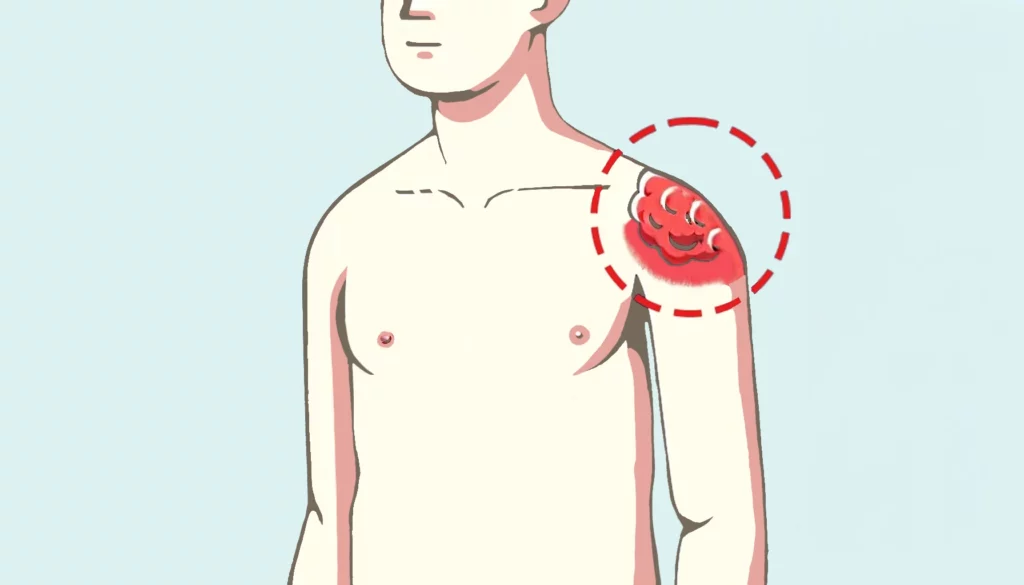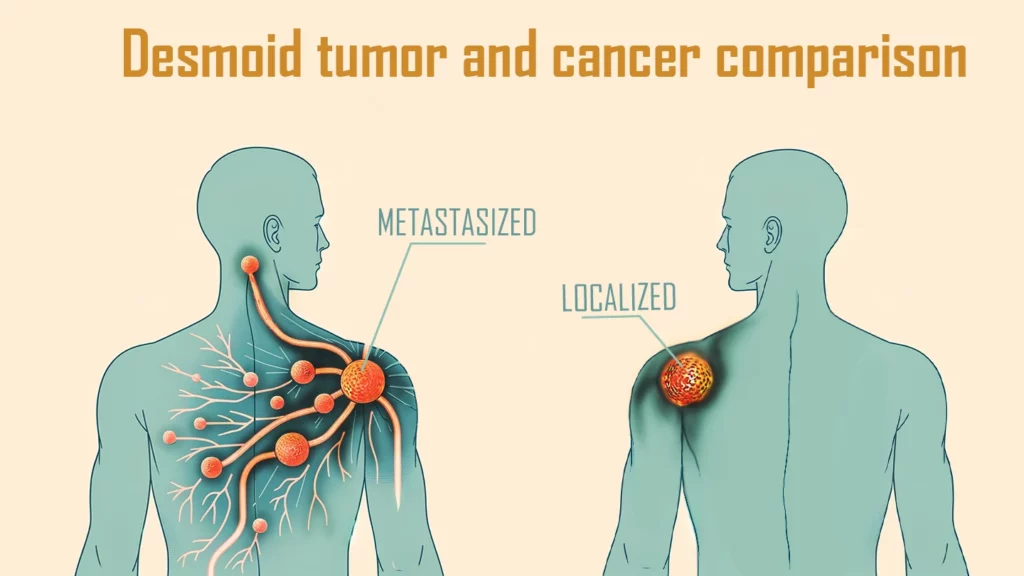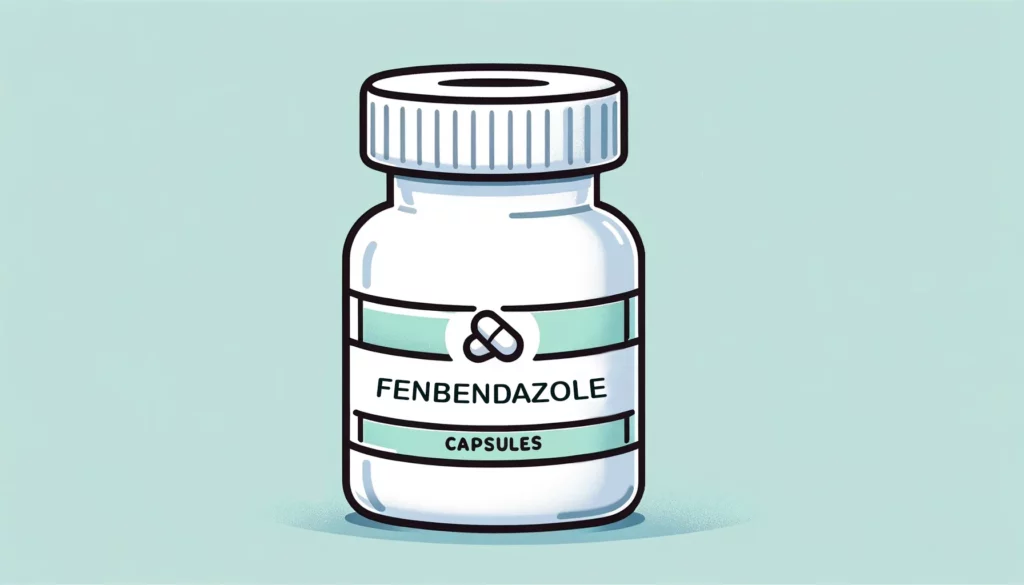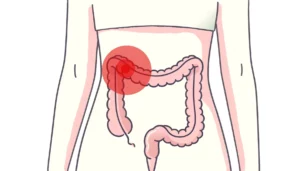
Fenbendazole has shown efficacy in eliminating non-cancerous tumors when conventional treatments have not succeeded. This case report highlights the journey of a 34-year-old man dealing with an aggressive desmoid tumor, also known as aggressive fibromatosis, situated on his left shoulder/scapula, extending into his chest wall. While not a cancerous tumor, as it doesn’t spread to distant body parts, it is treated in a manner similar to sarcoma because of its rapid and aggressive growth, along with its ability to invade large muscle groups or even the abdomen. Such tumors pose a life-threatening risk and often lead to disfigurement.
Understanding Desmoid Tumors: A Closer Look at Their Treatment and Management
Some desmoid tumors grow slowly and might not need to be treated right away. However, some grow fast and need to be dealt with through surgery, radiation therapy, chemotherapy, or medication.

Desmoid tumors aren’t considered cancers because they don’t metastasize or spread to other parts of the body. Yet, they can be just as aggressive as cancers, invading nearby organs and structures. This is why those affected by desmoid tumors often find themselves under the care of cancer specialists.
Outcome for Man Treating Tumor with Fenbendazole
2017: The man underwent surgery to excise a lipoma—a benign tumor made up of fatty tissue—in his left scapula area. Interestingly, this same spot would later be where a desmoid tumor emerged.
April 2018: After injuring his left shoulder, he quickly observed a new mass in the same area. It is believed that fibromatosis, an uncontrollable proliferation of scar tissue often triggered by injury, was responsible for this new growth.
October 2018: After showing symptoms, the man underwent an MRI, biopsy, and additional tests, which revealed the mass to be fibromatosis. At this point, the tumor was relatively small, measuring 3cm by 1.4cm by 1.3cm.
November 2018: He had surgery to remove the tumor, which was successfully completed with clear microscopic margins, confirming the entire tumor was removed. However, the surgery involved removing an entire muscle from his shoulder, initially resulting in the loss of some arm movements. Impressively, through persistent exercise and effort, he was able to regain more mobility than anticipated, astonishing his doctor.
July 2019: Unfortunately, the tumor started growing back. Instead of intervening right away, the medical team decided to keep an eye on its progress through regular MRI scans.
January 2020: The tumor had more than doubled in size, which led to the initiation of chemotherapy treatment with sorafenib, a drug frequently used for aggressive cases like this. He underwent this treatment for a year.
November 2020: The man received cryoablation treatment at various sites on his tumor, which had become extremely aggressive, spreading to his ribs (resulting in non-displaced fractures), chest wall, scapula, and the pleural membranes surrounding the lungs. While chemotherapy halted further growth, it didn’t eliminate the tumor. Cryoablation successfully shrank its size from 16cm x 6cm x 3cm to 5cm x 3cm x 5cm. Unfortunately, a complication from one of the cryoablation procedures led to a brachial plexus injury, rendering his left arm unusable.
September 2021: Despite earlier treatments, the tumor once again grew to more than double its size. It was at this point that the man’s wife came across fenbendazole, a drug she learned about while treating their dog’s lymphoma. Inspired by their dog’s positive reaction to the medication, they decided to give it a try for her husband’s tumor.

November 2021: Choosing to undergo surgery again, the doctors removed as much of the tumor as they could but couldn’t eliminate it entirely. Right after the surgery, he started a month-long course of radiation treatment. At the same time, he began taking fenbendazole, an unconventional medication for his condition, at a daily dose of 222 mg.
May 2022: The latest MRI revealed some enhancement, which was probably the result of scarring from the treatments rather than actual tumor growth. This represents a pivotal moment in his journey, underscoring the novel approach to treatment with fenbendazole and the continuous fight against the tumor’s aggressive behavior.
December 2022: An MRI showed only a fluid accumulation, likely a side effect of the radiation therapy, but importantly, there were no signs of the tumor.
June 2023: The latest MRI revealed no traces of the disease, an exceptional and uncommon result for this kind of tumor. The man has been in contact with many others facing similar conditions, and his experience is notably unique. Typically, individuals with this type of tumor endure numerous intense surgeries, experiment with a range of treatments without positive outcomes, and frequently confront severe disfigurement or even death. The abdominal variant of this disease, in particular, poses a greater threat due to its ability to encroach on major blood vessels.
Celebrating Innovative Victory Over a Complex Desmoid Tumor
This story highlights the couple’s creative and determined approach to tackling a difficult health challenge. Their success in eliminating a Desmoid tumor, which was deeply intertwined with surrounding tissues making its removal nearly impossible, is truly praiseworthy.
Question: It looks like the tumor disappeared about a year after starting fenbendazole treatment. Do you think it could have mostly vanished 6 months in, right after the first check-up?
Answer: He’s 40 now but was first diagnosed at 34, highlighting the lengthy and challenging battle he’s faced. For a year following the radiation and fenbendazole treatments, the doctors didn’t declare there was “no evidence of disease.” They observed some areas that appeared unusual, attributing them possibly to swelling or scar tissue from the treatments. However, during the latest scan, they finally confirmed the absence of the disease. I believe fenbendazole began to show its effects within the first six months. Given the extensive spread of the tumor and the difficulty in completely reaching it through surgery or radiation, fenbendazole’s early contribution seems to have been crucial.
Question: Did the doctors know your husband was taking fenbendazole? What was their reaction to it?
Answer: He didn’t bring it up with his oncologist until his most recent visit in June. His doctor showed interest and was primarily pleased that he was tumor-free.
Question: Did he also use any supplements, like vitamin E or CBD oil, which some believe enhance the effectiveness of fenbendazole?
Answer: Yes, he took sweet wormwood, multivitamins, vitamin D3/K2 and magnesium.

References
Alman, B. (2012). Desmoid Tumors: Are They Benign or Malignant?. In: Litchman, C. (eds) Desmoid Tumors. Springer, Dordrecht. https://doi.org/10.1007/978-94-007-1685-8_13
Plimmer H. G. (1903). THE PARASITIC THEORY OF CANCER. British Medical Journal, 2(2241), 1511–1515. https://doi.org/10.1136/bmj.2.2241.1511 Wishart, D. S. (2015). Is Cancer a Genetic Disease or a Metabolic Disease? eBioMedicine, 2, 478-479. https://doi.org/10.1016/j.ebiom.2015.05.022



